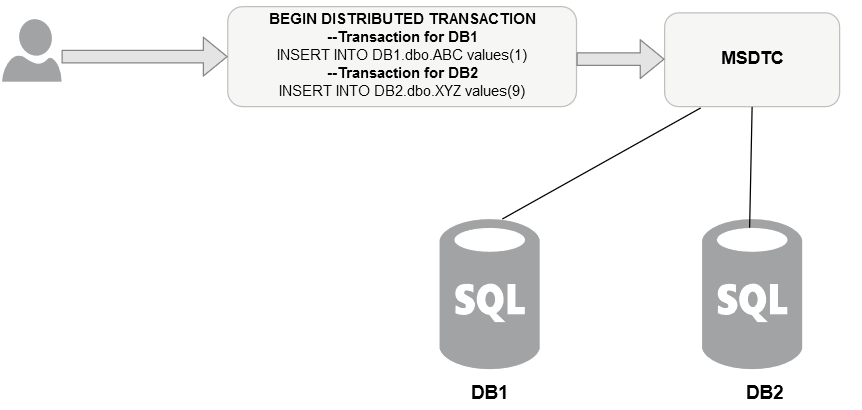Unveiling the Power of Multi-IP Addresses in SQL Server Always On Listener

Introduction to SQL Server Always on Feature
The SQL Server Always On feature is a revolutionary high-availability and disaster recovery solution brought to us by Microsoft. It provides an enterprise-level alternative to database mirroring. Introduced in SQL Server 2012, the Always On feature maximizes the availability of a set of user databases for an enterprise. This feature is a combination of failover clustering and database mirroring to provide high availability, disaster recovery, and read-only load balancing.
SQL Server Always On encompasses two technologies: Always On Failover Cluster Instances and Always On Availability Groups. The former leverages Windows Server Failover Clustering (WSFC) functionality to provide local high availability through redundancy at the server-instance level—a failover cluster instance (FCI). The latter allows a set of user databases that fail over together, maximizing database availability and balancing the load among secondary replicas.
Understanding the Concept of Multi-IP Addresses
Before we delve into the power of multi-IP addresses, let's first understand what they are. A multi-IP address is a configuration where a system is assigned more than one IP address. This configuration can be used in various scenarios, such as network load balancing, high availability, and server redundancy.
To visualize it, think of a busy road with only one lane. The traffic is often congested, and the traffic is blocked if there's an accident or road work. But if the same road has multiple lanes, the traffic can be distributed among different lanes, and even if one lane is blocked, the traffic can still move through other lanes. The concept of multi-IP addresses works similarly, providing multiple pathways for the traffic to ensure high availability and redundancy.
The Power of Multi-IP Addresses in SQL Server Always On Listener
In an SQL Server Always On environment, the concept of Multi-IP addresses plays a crucial role. It allows clients to connect to databases in primary and secondary replicas without knowing the actual node where the database resides. This is accomplished by creating a listener that utilizes several IP addresses from different subnets.
The listener, with its Multi-IP addresses, acts like a virtual entity, hiding the complexity of the underlying architecture from the client applications. It ensures that the traffic is automatically redirected to the available node in case of a failover, providing a high-availability environment. This means that the applications don't need to be aware of the actual server IP, and can still connect to the database, even if the primary server goes down. This is the real power of Multi-IP Addresses in SQL Server Always On Listener.
Implementation of Multi-IP Addresses in SQL Server Always On Listener
Implementing multi-IP addresses in SQL Server Always On Listener involves creating a listener for the availability group and assigning it multiple IP addresses. When creating the listener, you need to specify the DNS name, port, and network mode. Depending on your network architecture, you can add IP addresses from different subnets.
Once the listener is created, it will start monitoring the health of the replicas and redirect the traffic to the available node in case of a failover. It's crucial to remember that the IP addresses should be valid, and the subnet mask should match the network configuration. Also, the IP addresses should be static, as dynamic IP addresses can cause connectivity issues.
Benefits of Using Multi-IP Addresses in SQL Server Always On Listener
Using Multi-IP Addresses in SQL Server Always On Listener has several benefits. Firstly, it provides high availability. By having multiple IP addresses, the listener ensures that there's always an available path for the client applications to connect to the database. This is crucial in maintaining the availability of applications, especially in a scenario where a server goes down.
Secondly, multi-IP addresses provide redundancy. Having more than one IP address means that if one address fails, others can take up the load, ensuring that the applications can still connect to the database.
Finally, multi-IP addresses provide load balancing (DNS load balancing technology). Distributing the traffic across different IP addresses ensures that no single address is overwhelmed with traffic, improving the overall performance of the applications.
Common Challenges with Multi-IP Addresses in SQL Server Always On Listener
Despite the numerous benefits, using Multi-IP Addresses in SQL Server Always On Listener also comes with certain challenges. One of the major challenges is the complexity of managing multiple IP addresses. It requires careful planning and configuration to ensure that all the IP addresses are valid and correctly mapped to the listener.
Another challenge is the potential for IP address conflicts. If two devices on the same network are assigned the same IP address, it can lead to connectivity issues. This requires constant monitoring and management to prevent such issues.
Lastly, the use of multi-IP addresses also increases the network load. Each IP address adds an additional load on the network, and if not managed properly, it can lead to network congestion and degrade the performance of the applications.
Solutions and Best Practices for Using Multi-IP Addresses Effectively
There are several solutions and best practices that can be implemented to overcome the challenges associated with using multi-IP addresses. Firstly, proper planning and configuration is crucial. Before implementing multi-IP addresses, it's important to analyze the network architecture and plan the IP addresses accordingly.
It's also essential to constantly monitor the network to prevent IP address conflicts. Automated IP address management tools can be used to detect and resolve IP address conflicts in real-time.
Load balancing is another solution that can be used to manage the network load effectively. By distributing the traffic evenly across the IP addresses, it ensures that no single address is overwhelmed with traffic.
Real-World Examples of Multi-IP Addresses Usage in SQL Server Always On Listener
There are numerous real-world examples of the use of Multi-IP Addresses in SQL Server Always On Listener. For instance, an e-commerce company that needs to ensure the high availability and performance of its website may use Multi-IP Addresses to distribute the load and provide redundancy.
Similarly, a financial institution that needs to maintain the uptime of its online banking platform may use multi-IP addresses to ensure that there's always an available path for the clients to connect to the database.
Future Trends in SQL Server Always-On Listener and Multi-IP Addresses
As businesses continue to rely heavily on databases, the need for high availability and performance is expected to drive future trends in SQL Server Always On Listener and Multi-IP Addresses. We can expect to see more advanced features and improvements in the SQL Server Always On technology, making it even more reliable and efficient.
With the advent of technologies like artificial intelligence and machine learning, we may also see smarter and more efficient IP address management systems capable of detecting and resolving IP address conflicts in real-time and even predicting and preventing potential issues before they occur.
Conclusion
In conclusion, Multi-IP Addresses in SQL Server Always On Listener provides a powerful solution for high availability and redundancy. Despite the challenges, proper planning, configuration, and management can significantly enhance applications' performance and reliability. As we look toward the future, we can expect these technologies to evolve and become even more crucial in managing the growing demands of modern applications.
SQL Server Database Consulting Services
Ready to future-proof your SQL Server investment?
Share this
Share this
More resources
Learn more about Pythian by reading the following blogs and articles.

MSDTC and configuration details for cluster/Always On
Best Practice Recommendations for Windows Hosting SQL Server on VMware

How to Fix the “Triggers on Memory-Optimized Tables Must Use WITH NATIVE_COMPILATION” Azure SQL Data Sync Error
Ready to unlock value from your data?
With Pythian, you can accomplish your data transformation goals and more.
